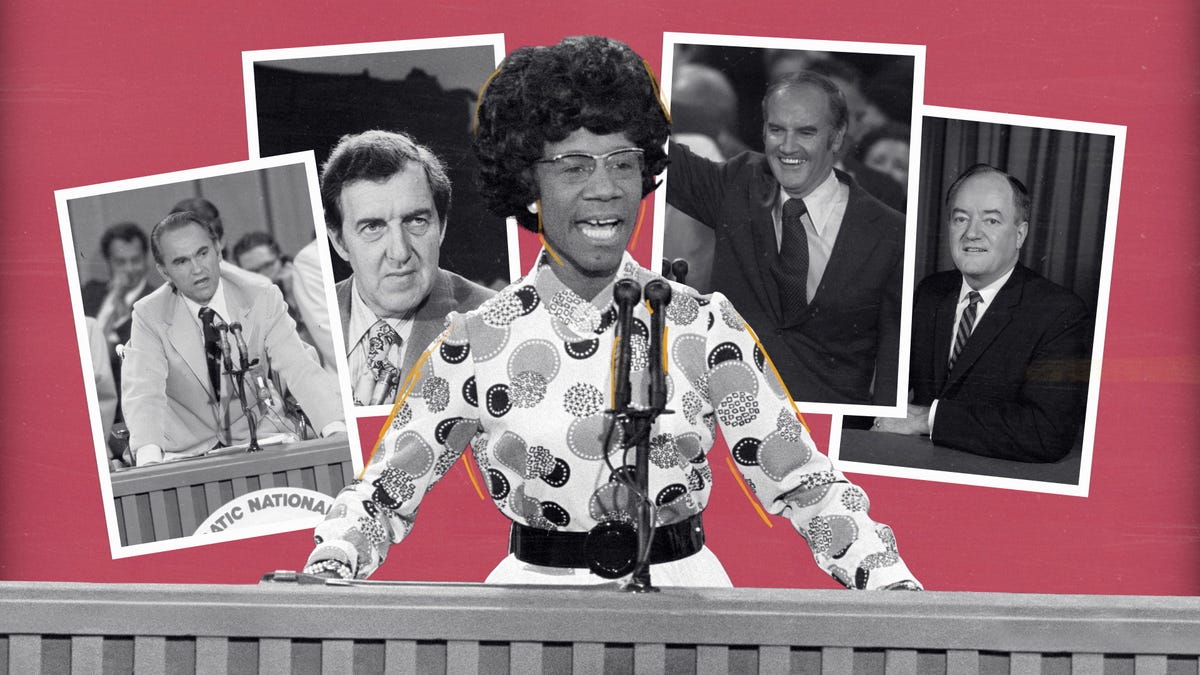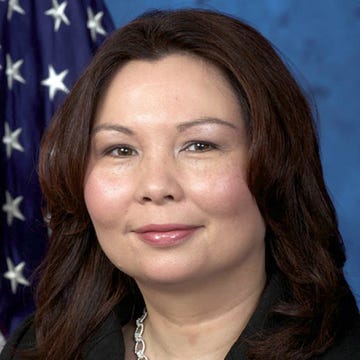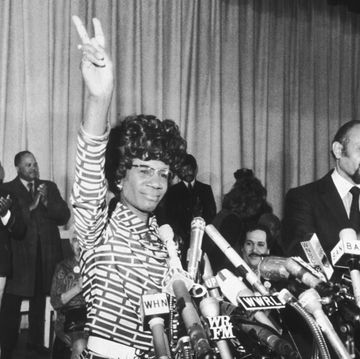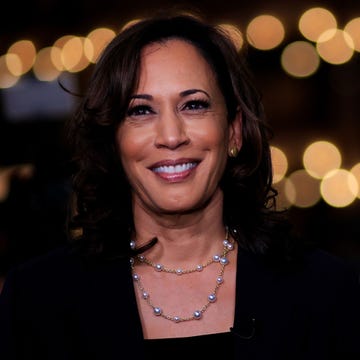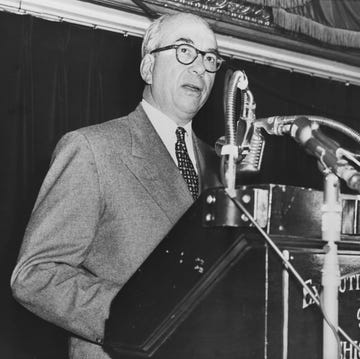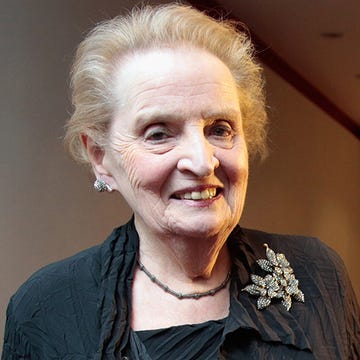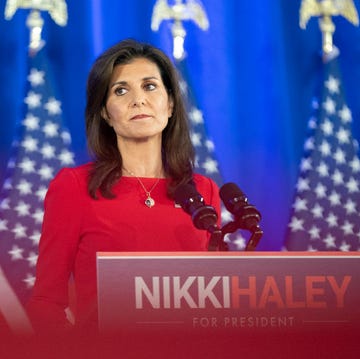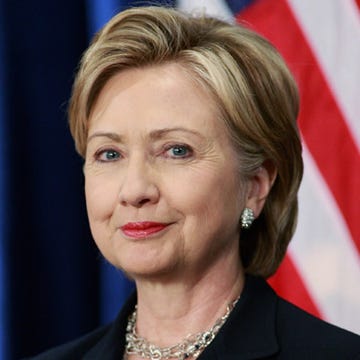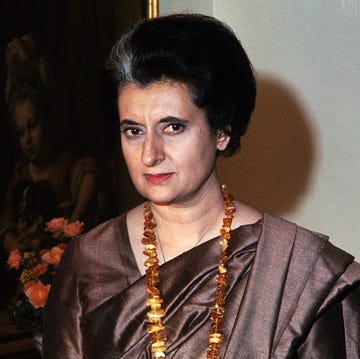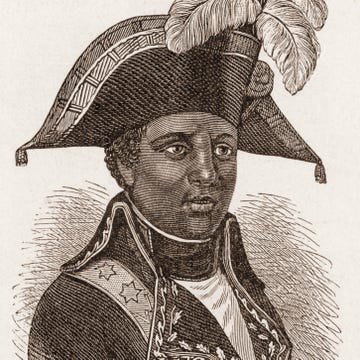(1971-)
Who Is Marco Rubio?
Born in Miami, Florida, Marco Rubio is the son of Cuban immigrants. After earning a bachelor's degree from the University of Florida in 1993, he went to the University of Miami for his law degree. Rubio's political career began with his election to the West Miami City Commission in 1998. He was elected in the Florida House of Representatives the following year. In 2009, Rubio won his campaign for the U.S. Senate. In 2015, Rubio announced his plans to run for the 2016 Republican presidential nomination. However, his campaign never picked up the momentum he had hoped for and he dropped out of the race after a disappointing defeat in his home state of Florida. He re-entered the race for his previous Senate seat and was re-elected in 2016.
Early Life
Rubio was born in Miami, Florida, on May 28, 1971. He is one of four children born to Cuban immigrants. Both of his parents worked hard to support the family. His father spent many years as a bartender and his mother held a number of service industry and retail jobs. In 1975, his parents became naturalized U.S. citizens. For Rubio, he became interested in public service early on. He has told the press, "I gained an interest in politics and history from my uncle, who would read books and newspapers out loud to us."
Rubio spent part of his childhood in Las Vegas, Nevada, but he returned to Florida in the 1980s with his family. A stellar athlete, Rubio was a top football player at South Miami High School. He graduated in 1989 and earned a football scholarship to Tarkio College in Missouri. Rubio left the school after a year and eventually enrolled at the University of Florida. After completing his bachelor's degree there in 1993, he earned a law degree from the University of Miami in 1996.
Political Career
Rubio began his life in public service in 1998 by winning a seat on the West Miami City Commission. Before long, he made his ascent into state politics. Rubio was victorious in his bid for the Florida House of Representatives in 1999. He quickly established himself as a political force with the legislature, becoming the majority leader in 2003 and then speaker of the House three years later.
As the speaker, Rubio launched an ambitious campaign to generate ways to improve and reform the state government. He held a series of gatherings around the state to hear and collect ideas from Florida residents. Culling from these suggestions, Rubio put together a proposal called "100 Innovative Ideas for Florida's Future." He presented the proposal to the legislature and more than half of these ideas became laws. One of these reforms, however, didn't survive the political process. The fiscally conservative Rubio had lobbied for property tax reforms and for instituting a sales tax increase.
In 2009, Rubio surprised many in Florida politics by taking on former Florida governor and Republican Charlie Crist for the Senate seat vacated by Mel Martinez. Analysts initially viewed Rubio as the underdog, and he trailed the better-known Crist in the polls at first. But the well-spoken young politician hammered at Crist for his ties to President Barack Obama and emphasized the state's dire need for economic change. "I'm in this race to win. Many of the things that make America unique are threatened by politicians in Washington, D.C. We're going to make irreversible decisions over the next four to six years. I want to be a part of correcting the course," he said during his campaign.
Late in the campaign, Rubio found himself retracting some of his statements about his family background. He had initially stated that his parents fled Cuba during the revolution. However, they had actually left before Fidel Castro took power. This information had little impact on his campaign. Voters seemed more taken with his pledges to curb federal spending.
With the help of Tea Party supporters, the reform-minded Rubio managed to win an impressive victory in November 2010. He defeated both Crist, who ran as an independent, and Democratic opponent Kendrick Meek. Since taking office in 2011, Rubio has become a member of several legislative committees, including the Senate Committee on Commerce, Science and Transportation; and the Committee on Foreign Relations.
Less than a year after taking office, Rubio became the subject of intense political speculation. His name was bandied about as a possible running mate for Mitt Romney in his 2012 bid for the presidency. Though Rubio denied that he had any interest in the vice-presidential nomination, political analysts and members of the Republican Party thought he would have a good choice for the vice-presidential spot due to his representation of an important state in the national election and likely support from the Latino community.
Instead of joining the Romney campaign, Rubio focused on his work in the Senate. In 2013, he was part of the “Gang of Eight”, a bi-partisan group of eight U.S. Senators who crafted a comprehensive immigration bill known as the Border Security, Economic Opportunity and Immigration Modernization Act of 2013. The bill provided a pathway to citizenship for undocumented immigrants and made the border more secure. The bill passed the Senate 62-32 but faced stiff resistance in the House. Eventually, Rubio withdrew his support for the bill citing more pressing priorities like repealing Obamacare. The House never took up the bill and it died in committee. Rubio’s participation in the formation of the immigration bill became a major issue during the 2016 Republican Presidential debates.
In 2014, in an effort to derail the Affordable Care Act, Rubio supported a provision to prevent the Department of Health and Human Services from tapping into other accounts to fund the risk corridors program. The result was several small insurers went out of business and others pulled out of the health care exchanges altogether.
Rubio has also been an outspoken pro-life advocate. He introduced legislation in January 2015 to allow states to "enforce their parental notification and consent laws" when a minor travels to another state for an abortion, according to Rubio's official website.
Presidential Campaign
In April 2015, Rubio announced his plans to run for the 2016 Republican presidential nomination. In a speech delivered in Miami, he explained why he decided to seek the country's highest office. "We've reached a moment now, not just in my career, but the history of our country, where I believe that it needs a Republican Party that is new and vibrant, that understands the future, has an agenda for that future," Rubio said. "And I feel uniquely qualified to offer that."
In his bid for the Republican nomination, Rubio faced competition from fellow senators Ted Cruz and Rand Paul, both of whom had already announced their candidacies. He also had to battle his one-time mentor Jeb Bush. While he was brought into office with Tea Party support, Rubio shifted to a more moderate conservative position.
As his presidential campaign advanced, Rubio found himself up against real estate magnate and reality TV star Donald Trump, who had emerged as a leading candidate along with Cruz. He did fare better than many of his other Republican opponents in the first contest for delegates: the Iowa Caucus. In February 2016, Cruz won the most votes and 8 delegates, but Rubio managed to come in third. He was nearly tied with Trump, winning 23.1% of the votes to Trump's 24.3%. Both Rubio and Trump won 7 delegates each. Later that month, he received only 24.0% of the vote in Nevada caucuses, where he'd spent much of his childhood years. The next month, Rubio dropped out of the race after a crushing defeat in his home state by Trump, who won every county except for Miami-Dade.
Return to the Senate
After his defeat by Trump, Rubio had asserted that he would not seek re-election for his Senate seat and would be taking a break from politics. In June 2016, however, Rubio announced that he would run for a second Senate term. In November 2016, Rubio defeated his Democratic opponent, Representative Patrick Murphy, and won re-election in the Senate race.
Rubio's return to the Senate was aided by veteran Republican operative Clint Reed, who managed the senator's campaign before taking over as his chief of staff in January 2017. However, the following January, Rubio announced he had abruptly fired Reed, following accusations of improper conduct with employees in the senator's office.
In February 2018, Politico reported that Rubio was collaborating with first daughter Ivanka Trump on ideas for creating maternity-leave coverage that would appeal to Republican supporters. Among the ideas the Florida senator was said to be considering was a program in which parents could draw from Social Security benefits to pay for their time away from the workplace.
Later that month, following the horrific shooting at Marjory Stoneman Douglas High School in Parkland, Florida, that left 17 dead, Rubio agreed to participate in a town hall discussion on the subject that aired live on CNN. Facing tough questions and blistering comments from surviving students and parents who lost loved ones, Rubio endorsed raising the age requirement for buying a rifle and said he was reconsidering his opposition to placing limits on high-capacity magazines. He declined to say whether he would continue receiving donations from the NRA.
Meanwhile, the Florida senator was seeking to push through his Second Amendment Enforcement Act, designed, in part, to curb the assault weapons ban in Washington, D.C. When city Mayor Muriel Bowser asked Rubio to withdraw his bill, he replied with a letter that said they "share a common goal," insisting his legislation was simply meant to ensure that D.C. law was "in line with federal law."
When the coronavirus pandemic shut down communities and threatened to torpedo the economy in the early months of 2020, Rubio spearheaded the creation of the Paycheck Protection Program as chairman of the Small Business Committee. In May, he took over as interim chairman of the Senate Intelligence Committee when the incumbent head, Richard Burr, stepped aside during an FBI investigation into his stock trading.
Personal Life
Married since 1998, Rubio and his wife, Jeanette, have four children: Amanda, Daniella, Anthony and Dominic. Outside of politics, Rubio is known for his passion for football. He is a die-hard Miami Dolphins fan and his wife was once a cheerleader for the team.
QUICK FACTS
- Name: Marco Antonio Rubio
- Birth Year: 1971
- Birth date: May 28, 1971
- Birth State: Florida
- Birth City: Miami
- Birth Country: United States
- Gender: Male
- Best Known For: Marco Rubio was elected to the U.S. Senate representing Florida in 2010. After an unsuccessful bid for the Republican presidential nomination, he was re-elected to the Senate in 2016.
- Industries
- U.S. Politics
- Astrological Sign: Gemini
- Schools
- University of Florida
- University of Miami
- Tarkio College
Fact Check
We strive for accuracy and fairness.If you see something that doesn't look right,contact us!
CITATION INFORMATION
- Article Title: Marco Rubio Biography
- Author: Biography.com Editors
- Website Name: The Biography.com website
- Url: https://www.biography.com/political-figures/marco-rubio
- Access Date:
- Publisher: A&E; Television Networks
- Last Updated: March 29, 2021
- Original Published Date: April 2, 2014
QUOTES
- Americans chose a limited government that exists to protect our rights, not to grant them.
- Many of the things that make America unique are threatened by politicians in Washington, D.C.

